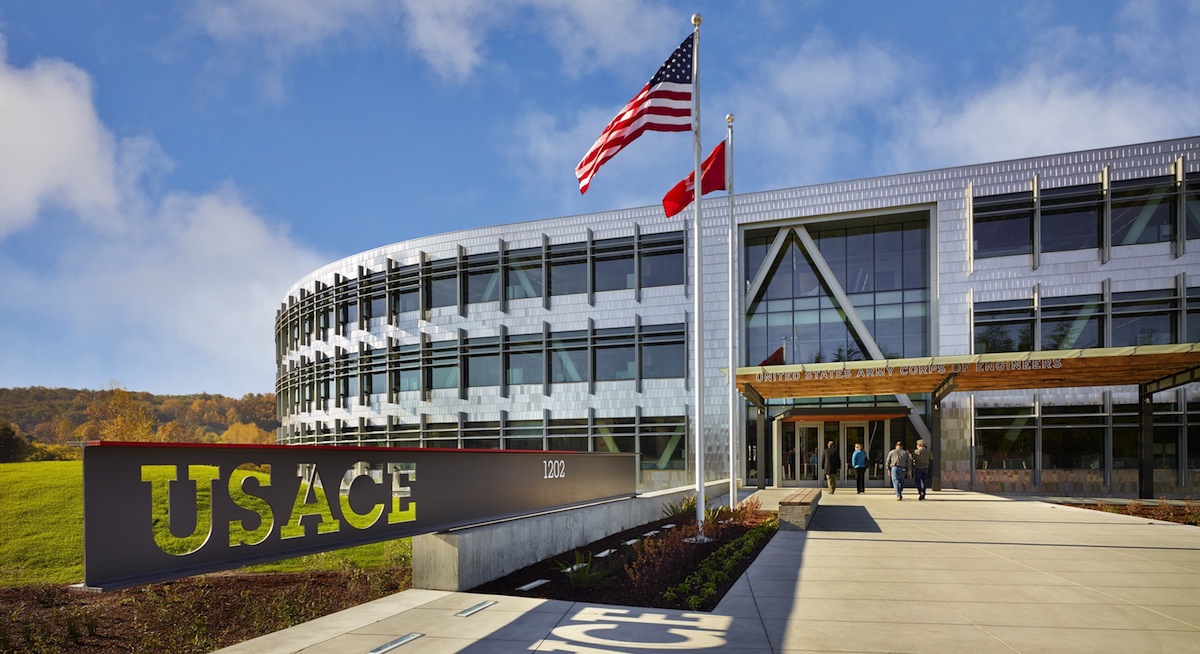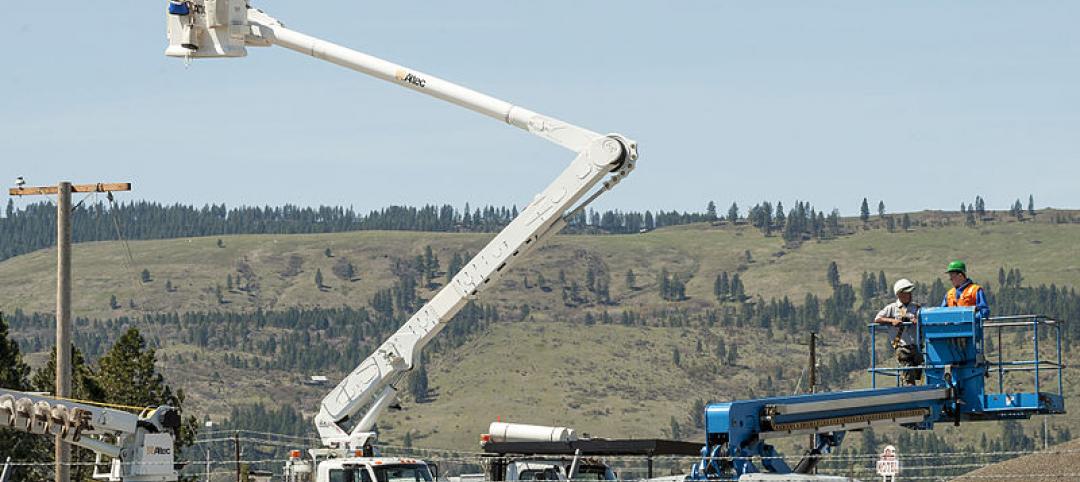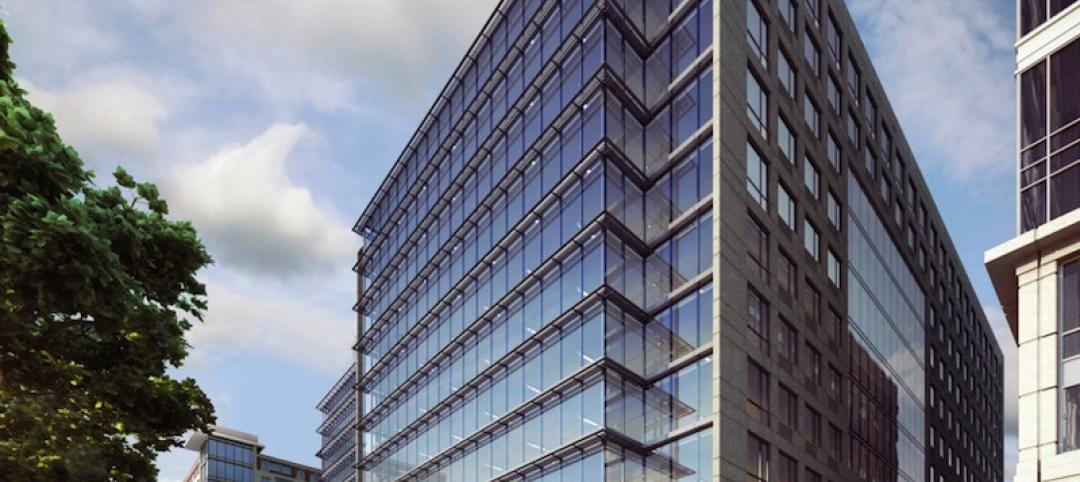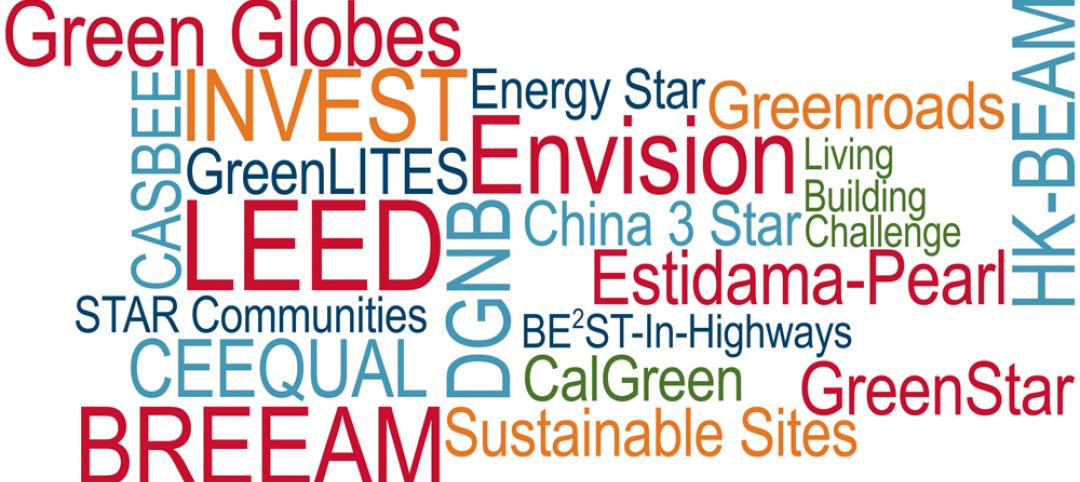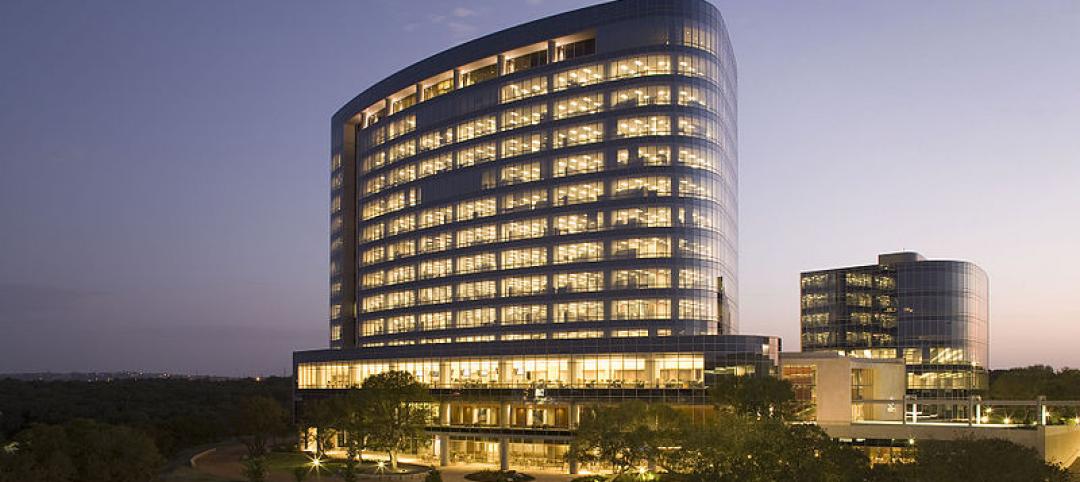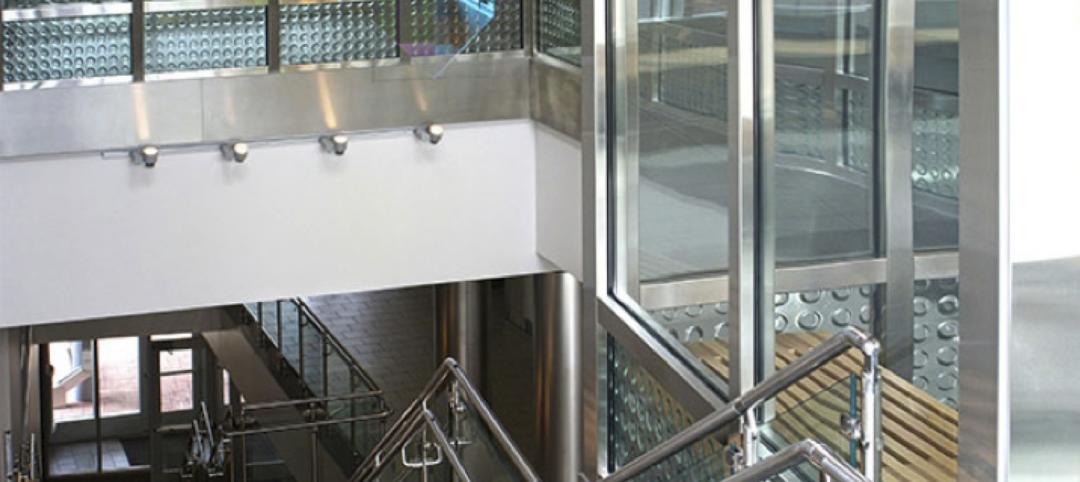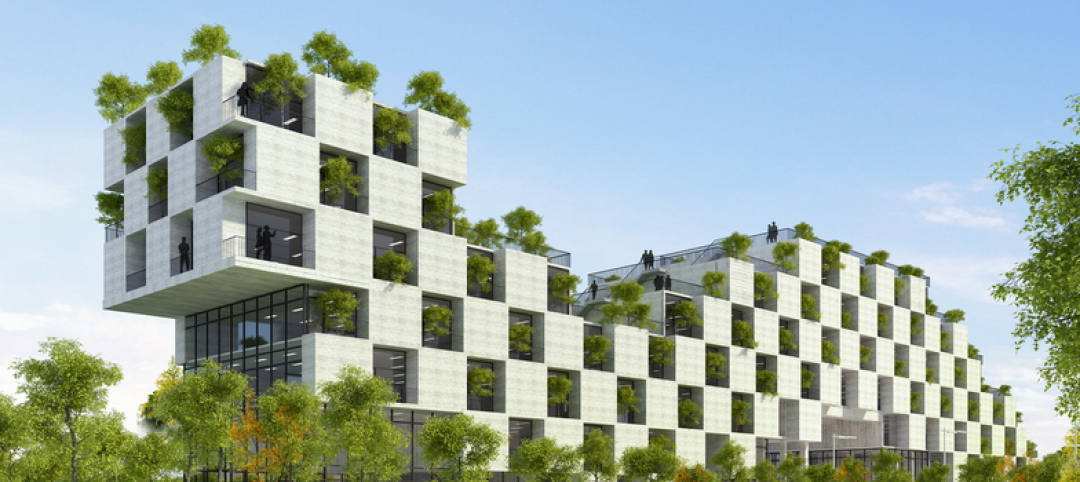The American Institute of Architects (AIA) and its Committee on the Environment (COTE) have selected the U.S. General Services Administration’s (GSA) Federal Center South Building 1202 in Seattle, as the recipient of the Top Ten Plus award. The Top Ten Plus, now its third year, recognizes one past AIA COTE Top Ten Project Award recipient which has quantifiable metrics that demonstrate the true impact the sustainable design has achieved.
The Federal Center South Building 1202, designed by ZGF Architects LLP and built by Sellen Construction, was selected in 2013 as a recipient of the AIA/COTE Top Ten Project Award program. More information on the design elements and images are available here.
The redevelopment project was part of the 2009 American Recovery and Reinvestment Act and was delivered on time and within the original $72 million budget. The new building transformed a previously toxic brownfield into a new standard for a high-performance, cost-effective, and sustainable workplace environment for the U.S. Army Corps of Engineers. Far from typical in government projects, the design and construction of the facility was completed in just 31 months as part of a rapid project delivery model.
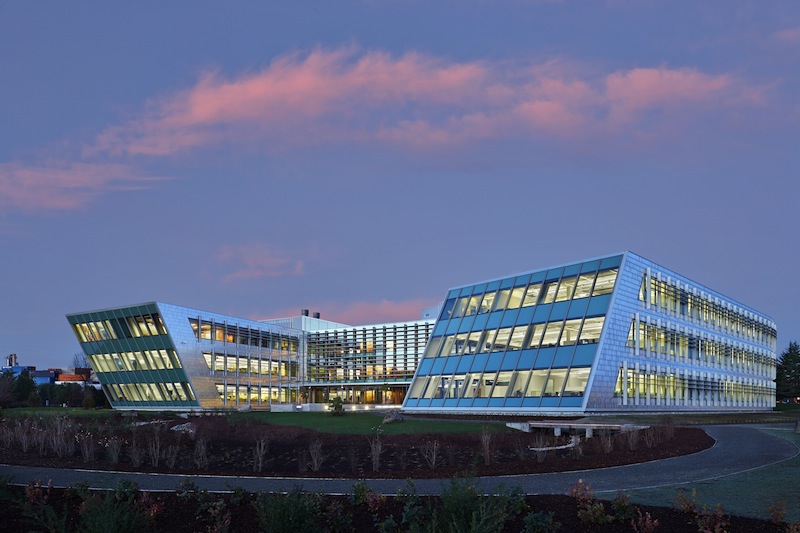
Following a one-year measurement and verification period, it was established that the building’s energy performance is meeting the goal of more than 30% better than ASHRAE 90.1—the benchmark for commercial building energy codes in the U.S.
After the first year, the facility’s metered energy performance has met every design target, including the contractually required energy performance and the AIA 2030 Commitment. At of the end of last year, the Federal Center South building was using 61% less energy than the national average for similar buildings and 46% less water than a current plumbing code defined baseline.
“This project demonstrates the success of performance-oriented contracting and the value of both energy modeling and post-occupancy monitoring,” said Todd Stine, AIA, partner at ZGF Architects LLP. “The energy modeling done in the design phase showed a $55,000 energy cost savings each year associated with the high-performance systems integrated into the building. The post-occupancy evaluation looked at energy and workplace performance and has been crucial in determining how to best optimize all facets of how the building was intended to function.”
The COTE Top Ten Plus jury commented, “We admired ZGF Architects for their persistence over time to improve both their understanding of the planned performance of the building and its actual performance; they were genuinely curious about how the building was working out. There are signs of science and research in the relationship between daylighting and employee performance, along with evidence that the building has caused an enhanced environmental culture amongst its occupants.”
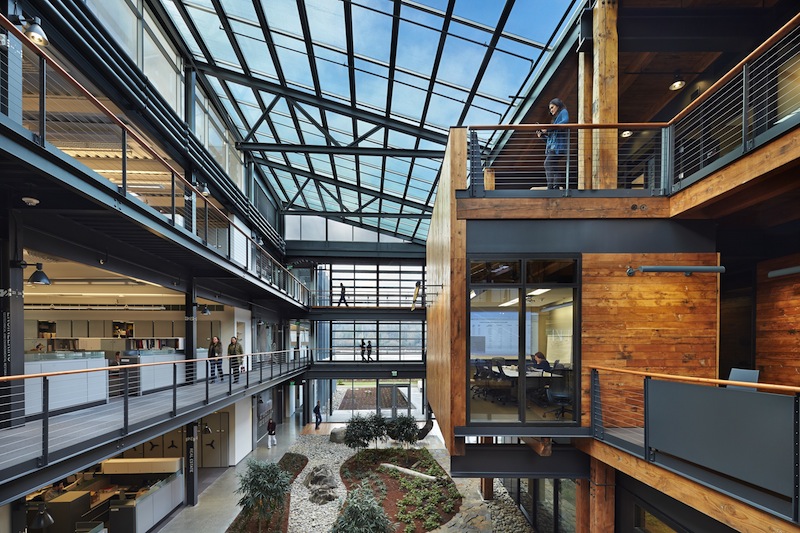
“The AIA COTE+ recognition is an honor and a testament to the teamwork between GSA, ZGF, and Sellen Construction to build a facility that not only exceeds GSA’s sustainability goals but delivers bottom line results that will save taxpayers money for years to come,” said GSA Regional Administrator George Northcroft.
To further enhance the building’s sustainable performance, the team developed, tested and evaluated enhancements to the base design during the design and construction of the project so that the GSA could incorporate upgrades into the project as funding became available. Through this process, the team was able to add rainwater harvesting, a geothermal system, enhanced lighting controls, an energy dashboard and improved glass in the main skylight.
This project was designed to meet GSA’s requirement for a building with a 50-year minimum lifespan, and mechanical equipment that lasts a minimum of 20 years. The campus site can also accommodate the 30-yearexpansion and redevelopment requirements for a number of federal agencies.
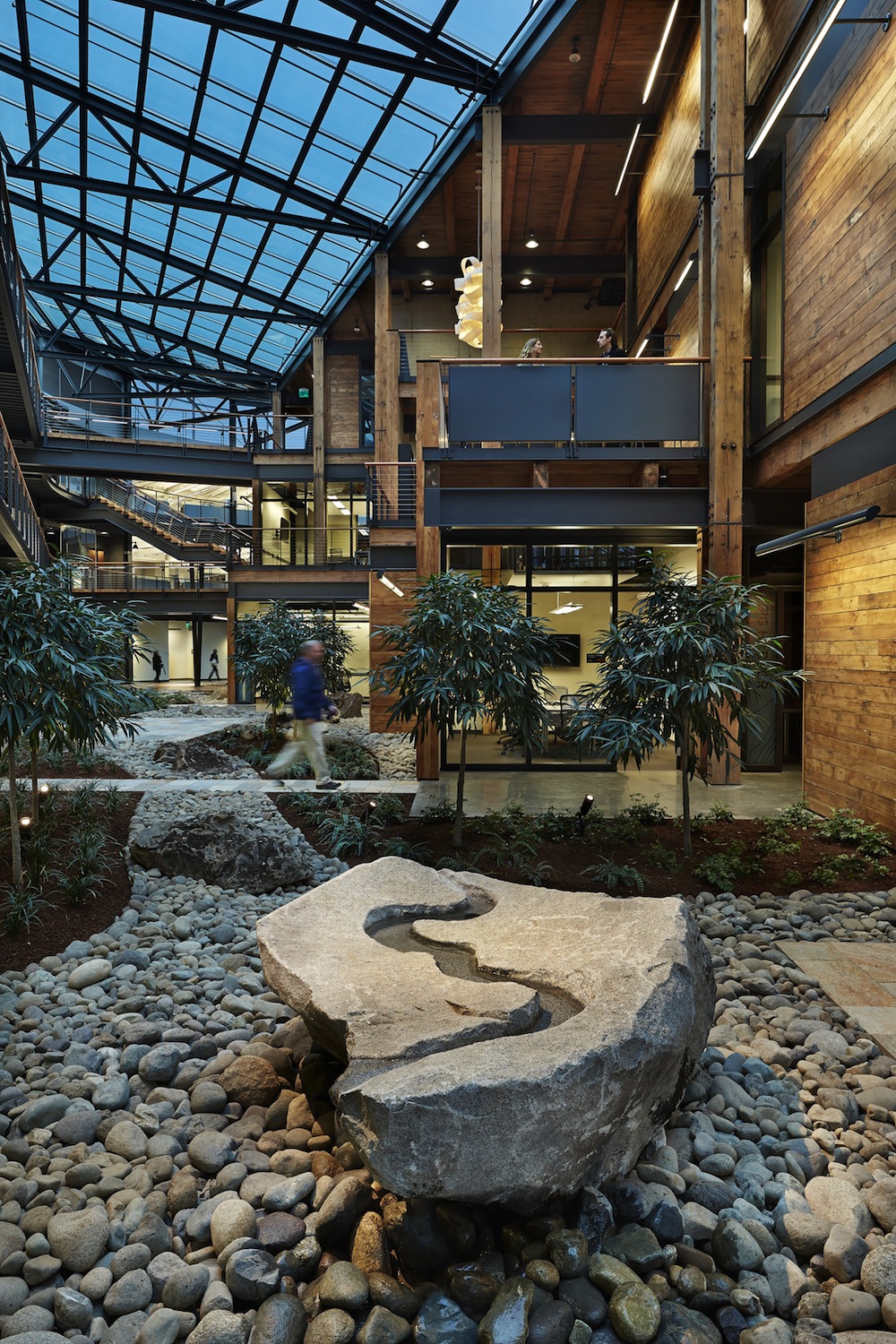
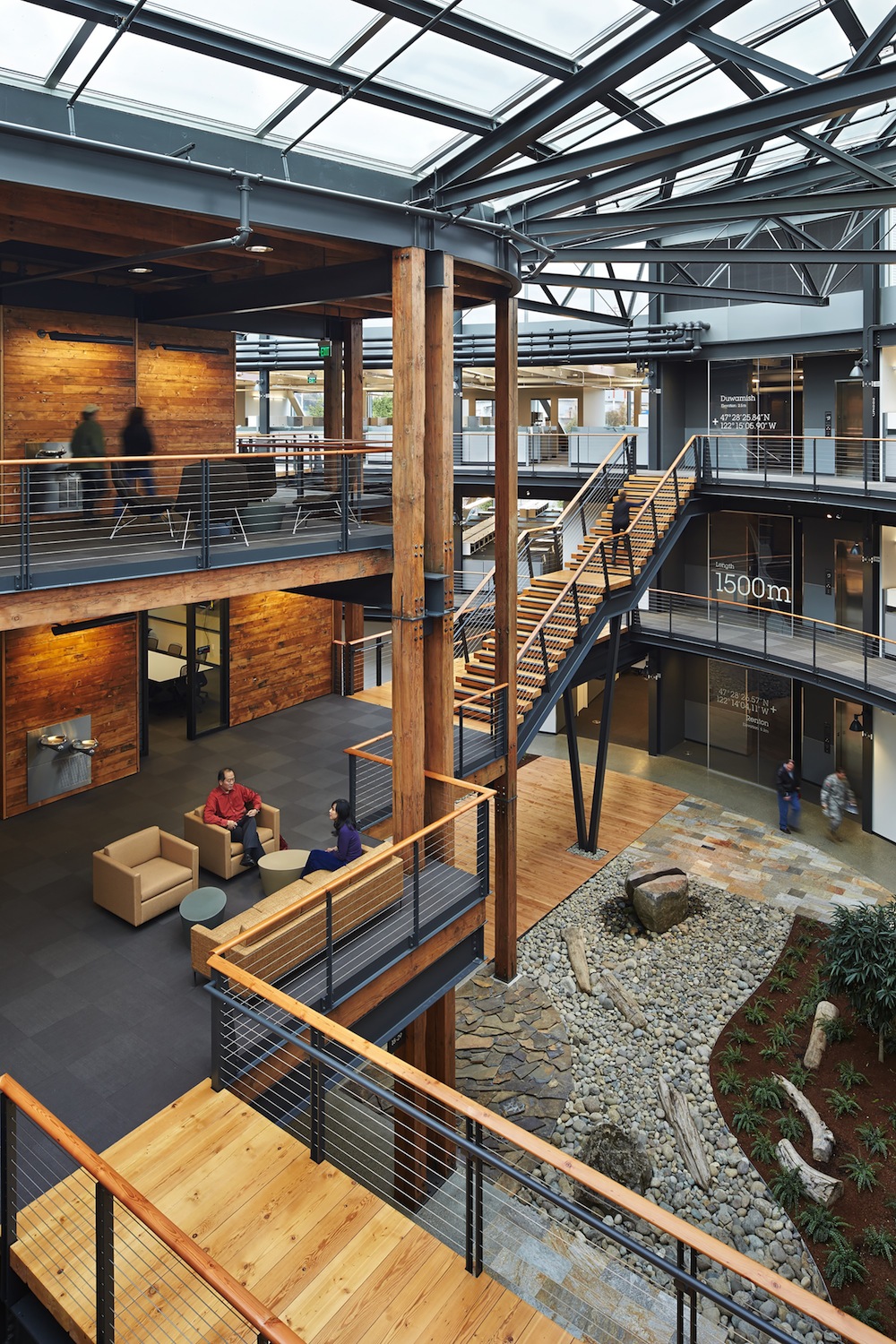
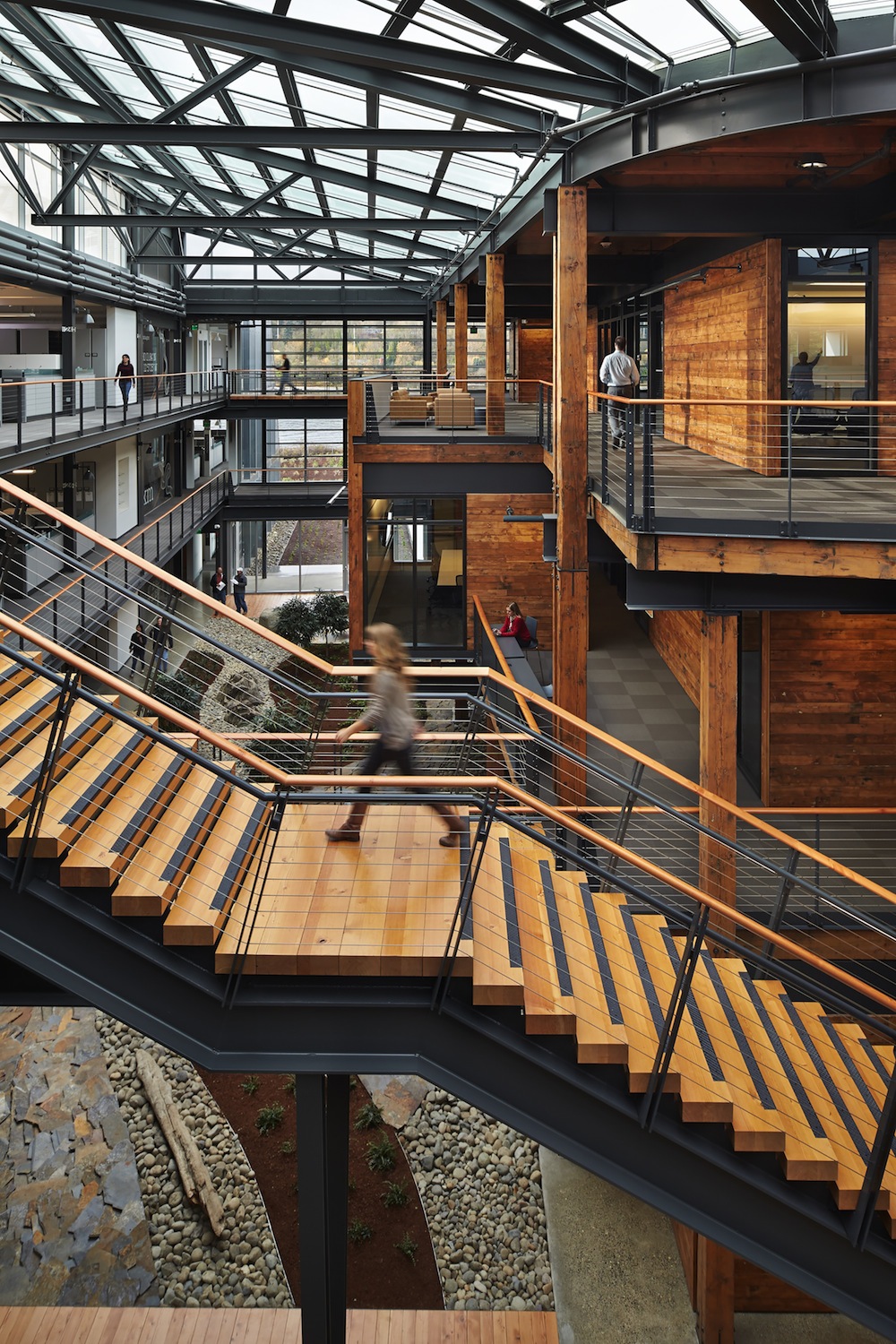
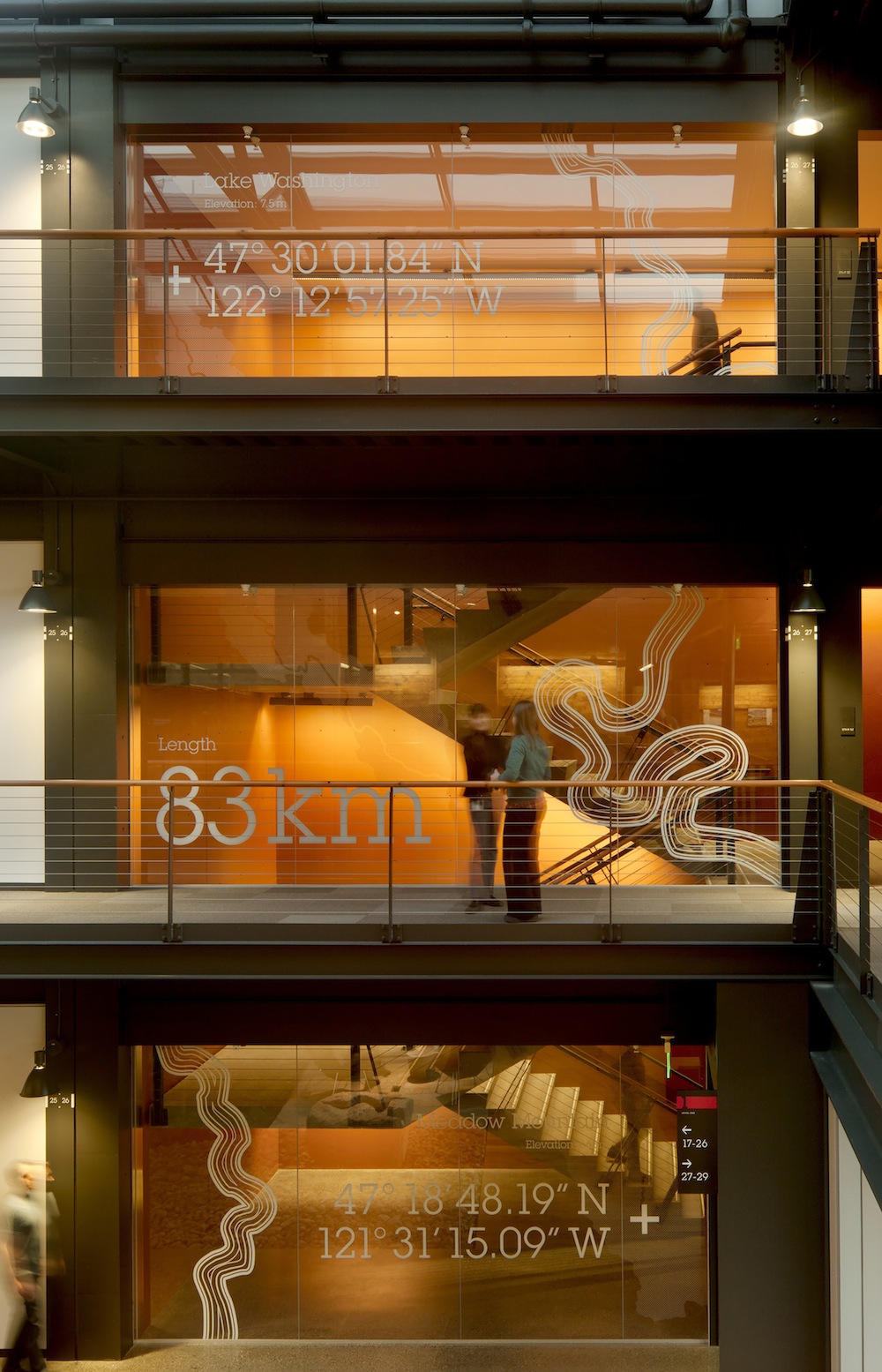
Related Stories
| Oct 2, 2014
11 projects receive Affordable Green Neighborhoods grants from BoA, USGBC
Each of these neighborhood redevelopment projects are notable for their planned affordable housing, compact design, commitment to green building and sites located near transit or other existing amenities.
| Sep 29, 2014
Living Building vs. LEED Platinum: Comparing the first costs and savings
Skanska USA's Steve Clem breaks down the costs and benefits of various ultra-green building standards and practices.
| Sep 29, 2014
Report finds links between office design, health and productivity
A new report from the World Green Building Council finds “overwhelming evidence” to support office design as a significant influencer of the health, wellbeing and productivity of staff.
| Sep 16, 2014
Studies reveal growing demand for LEED-credentialed professionals across building sector
The study showed that demand for the LEED Accredited Professional and LEED Green Associate credentials grew 46 percent over a 12-month period.
| Sep 15, 2014
Sustainability rating systems: Are they doomed?
None of the hundreds of existing green building rating systems is perfect. Some of them are too documentation-heavy. Some increase short-term project cost. Some aren’t rigorous enough or include contentious issues, writes HDR's Michaella Wittmann.
| Sep 8, 2014
First Look: Foster + Partners, Fernando Romero win competition for Mexico City's newest international airport
Designed to be the world’s most sustainable airport, the plan uses a single, compact terminal scheme in lieu of a cluster of buildings, offering shorter walking distances and fewer level changes, and eliminating the need for trains and tunnels.
| Sep 7, 2014
USGBC + American Chemistry Council: Unlikely partners in green building
In this new partnership, LEED will benefit from the materials expertise of ACC and its member companies. We believe this has the potential to be transformational, writes Skanska USA's President and CEO Michael McNally.
| Sep 3, 2014
New designation launched to streamline LEED review process
The LEED Proven Provider designation is designed to minimize the need for additional work during the project review process.
| Aug 25, 2014
Glazing plays key role in reinventing stairway design
Within the architectural community, a movement called "active design" seeks to convert barren and unappealing stairwells originally conceived as emergency contingencies into well-designed architectural focal points. SPONSORED CONTENT
| Aug 12, 2014
Vietnam's 'dragonfly in the sky' will be covered in trees, vegetation
Designed by Vietnamese design firm Vo Trong Nghia Architects, the building will be made up of stacked concrete blocks placed slightly askew to create a soft, organic form that the architects say is reminiscent of a dragonfly in the sky.


